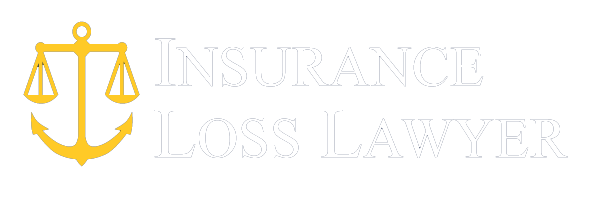Insurance companies make money by collecting premiums –not by paying out claims.The insurance industry has spent quite a lot of time and money to compile data on how many insureds simply accept whatever an insurance company offers, how many insureds contest denials, how many insureds miss deadlines or fail to comply with post-loss requirements, how many insureds give up after delays and how many lawsuits are filed.This industry is driven by these numbers and calculations that are set up to maximize profits and reduce payouts.Although the insurer’s adjusters, attorneys, contractors or experts may be personable, an insured should always remember that these professionals are all employed to assist the insurer make money and not to help you maximize your claim.Unfortunately, many insureds do not understand how insurance companies and the claims process work and they often hurt their chance of recovery or the recovery amount by trying to be helpful and putting faith in their insurer and professionals that work for their insurer.
INSURANCE CLAIM TIPS
- REPORT YOUR CLAIM PROMPTLY AND BE INFORMED Review your insurance policy as soon as possible.Check the stated dollar limits for your coverage categories: Dwelling, Contents (personal property), and Additional Living Expenses, Loss of Business or Rent.Check for building code/ordinance coverage, “endorsements,” (extra coverages or changes in coverage), and “scheduled” personal property items(artwork, jewelry, inventory, valuables).
- GET PROFESSIONAL ASSISTANCE
Your insurer will hire an adjuster, surveyor, engineer and/or other experts. If your insurer has experts, shouldn’t you have experts too? You may be an expert in what you do for a living; however, there are very few people that understand the complex issues that arise with insurance claims and who can maximize the value of the claim. Most professionals are able to increase the value of your claim far in excess of their fees or changes. Moreover, attorney’s fees and costs are often recoverable from the insurer.
- DOCUMENT YOUR LOSS AS THOROUGHLY AS YOU CAN
In many types of losses written or photographic proof may be destroyed as a result of the loss.Take photographs and get the receipts and records for purchase and repair of all damages to yourproperty or items. Credit card companies, vendors and retailers can help you reconstruct purchases and identify replacement costs. Public adjusters can help you by creating detailed estimates that are often compiled with the same software and in the same format that the insurance companies use and they can help prepare personal property inventory. Always get your own appraisals and estimates to replace art, antiques, and valuables so you can compare them with those obtained by the insurance company.
- MAINTAIN AN INSURANCE CLAIM DIARY – TIMELINE OF EVENTS
Take and keep detailed notes of all conversations with insurance company representatives. Recordtheir names, phone numbers, job titles and supervisor’s names. Keep track of when events occur or should
occur. Set deadlines and enforce them. Confirmeverything in writing.
- UNDERSTAND YOUR RIGHTS
Every state has regulations and laws that govern how insurance companies are supposed to handle claims. The agency that regulates insurance companies in your state should give you information on the regulations and laws that protect you. Consumer organizations, policyholder attorneys, surveyors and public adjusters are also be good sources of this information.
- YOU MUST COOPERATE WITH REASONABLE REQUESTS FOR INFORMATION AND DOCUMENTS, BUT YOU NEED TO UNDERSTAND YOUR RIGHTS
You are contractually obligated to cooperate with reasonable requests for information or documents from your insurer that relate to you claim. You may be asked to give a recorded statement or participate in anExamination Under Oath(“EUO”). Consult with an attorney before giving any statements or sitting for an EUO.If you give a sworn statement use your own tape recorder to record your statement.
- DIFFERENCES BETWEEN REPLACEMENT&ACTUAL CASH VALUE COVERAGE
Actual Cash Value(“ACV”) is defined as “Fair Market Value,”which is the amount a willing buyer would pay a willing seller under no duress. Goff v. State Farm Florida Ins. Co., 999 So.2d 684(Fla.2nd DCA 2008). ACV does not mean replacement cost minus depreciation.Insurers often exploit consumer confusion on this issue and are inconsistent in the way they calculate and deduct depreciation.
- YOU ARE ENTITLED TO “LIKE KIND AND QUALITY” REPAIRS OR REPLACEMENT
Replacement Cost Value (RCV) provides coverage for replacement or repairssame quality and style property you had and not just the “used” value of the damaged property at the time of the loss.If you don’t have this coverage, or coverage for “building code compliance,” get it.
- “ADDITIONAL LIVING EXPENSE” COVERAGE
Submit for reimbursement all receipts of meals, lodging, and purchases from the time of the loss until your home is rebuilt. Maintain copies for your records. If insurance company delays or circumstances beyond your control make the rebuilding or repairs take longer, argue for longer ALE benefits.
- MAKE SURE EVERYONE IS DEALING WITH THE SAME “SCOPE”
Get a “scope” of work from your public adjuster or surveyor that defines the amount and nature of repairs they believe are needed. Agreement as to scope allows you to compare “apples to apples.”If you have an agreement and/or understanding as to scope then you can determine the difference in the pricingthat is being used or proposed.
- DO NOT SIGN ANY RELEASES OR WAIVERS UNTIL YOU KNOW YOUR RIGHTS
You should not have to sign a Release to get paid on your insurance claim. If your insurer wants you to sign a Release or any documents, find out why and be cautious about signing away your rights.Cases in litigation generally require a Releases, disbursement schedules and other settlement documents.
IMPORTANT TIME FRAMES IN FLORIDA
- Notice of loss to your insurer should be immediate orwithin a reasonable time under the circumstances.
- Failure to give timely notice of loss is legal basis for denial of recovery under the policy. Ideal Mut. Ins. Co. v. Waldrep, 400 So.2d 782 (Fla. 3rd DCA 1981).
- Proof of Loss: Look to policy provisions; 30 days, 60 days upon request
- Failure to file a statement of proof of loss within 60 days was a breach of contract, and therefore grounds for the claim to be denied. Starling v Allstate, 956 So.2d 511 (Fla. 5th DCA 2007).
- Statute of Limitations:
- A statute of limitations is the maximum amount of time that a legal action can be filed.
- Contractual – 5 years from date of denial;
- Negligence of agent –4 years
- Hurricane Claim – 3 years from landfall to report your hurricane claim
- FIGA claim: Suit must be filed within 1 year after the deadline for filing claims with the receiver of the insolvent insurer or barred by statute of limitations. S. 631.68
- An insurer must pay or deny a claim within 90 days of notice of a property insurance claim from a policyholder on a residential property or commercial for property 10,000 square feet or less. Any payment after 90 days bear’s interest from the date insurer received notice of the claim. S. 627.70131(5)(a)
- Flood Insurance is different:
- Must file proof of loss within 60 days of damage.
- Failure to do so is a bar to recovery. Lucien v. U.S.Sec. Ins. Corp., 143 Fed. Appx. 152 (CA 11 2005).
- A Proof of Loss should be submitted on the standard form utilized by FEMA, and it must be completely filled out.
- Supplemental Proofs of Loss submitted after additional damage is discovered may be disallowed under the flood policy. Dogwood Grocery v. South Carolina Is. Co., 49 F. Supp.2d 511 (W.D. La. 1999).
EXAMINATIONS UNDER OATH
- Most insurance policies require an insured to submit to anEUOas part of the insurer’s investigation prior to making a determination of coverage.
- AnEUO is a procedure wherein the insured is asked a number of questions by the insurer’s attorney, under oath, regarding the subject claim.
- The Florida Rules of Civil Procedure do not apply to EUOs. Because an EUO is conducted by an attorney for the insurer and is sworn testimony it is highly recommended to have an attorney present.
- An attorney will monitor the propriety and scope of the insurer’s conduct and questions in order to protect the insured’s interest in the claim. All statements are admissions and can be used against you.
- Read the policy as many policies are now expanding the definition of who has to sit for an EUO.
- Books & Records; Very broad discretion in what can be demanded to be provided by insurer.
- Make sure to read your insurance policy first
- Review all photographs, estimates, correspondence, and other documents prior to the EUO
- Consult with your attorney and/or public adjuster prior to the EUO
- You do not have to create documents that are not in your possession and/or do not exist; NOTE however, that failure to produce requested documents that you do have in your possession can result in a claim denial or allow the insurance company to force you to sit for an additional EUO
- A Public Adjuster is not required to submit to an EUO
APPRAISALS
- Many insurance policies provide for appraisal if there is a disagreement as to the amount of the loss.
- Read the policy of insurance as to the contractual requirements of appraisal.
- Appraisal is a type of arbitration and the result should be binding on the parties.
- There are generally no time frames for invoking appraisal.
- Appraisal can be waived. Bankers v. Brady, 765 So.2d 870 (Fla. 5th DCA 2000) – Insurance company could not demand appraisal after public adjuster and company adjuster agreed on loss amount.
- Appraisal clauses are enforceable. Southern Homes Ins. Co. v. Faulkner, 49 So. 542 (Fla.1909).
- Appraisal can be a condition precedent to filing suit if the appraisal clause in policy is invoked. New Amsterdam Cas. Co. v. Blackshear, 156 So. 695 (Fla. 1934).
- Causation may be analyzed by appraisers, yet coverage disputes are reserved for courts.
- Coverage as to the entire claim or a part of the claim can be asserted after appraisal.
CIVIL REMEDY NOTICES
- Must file Civil Remedy Notice (CRN) as a condition precedent to a Bad Faith lawsuit.S. 624.155.
- A CRN is not ripe until damages are determined. Liberty Mutual Ins. Co. v Farm, Inc. 754 So.2d 865 (Fla. 3rd DCA 2000).
- Insurer has 60 days from receipt of CRN to pay claim or correct violation.
- Time doesn’t start until a “complete” CRN filed.
- CRN must be on a form provided by the Department and contain:
- Statute number and specific language of statute that insurer violated.
- Facts and circumstances giving rise to the violation.
- Names of all individuals involved in violation.
- Specific policy language relevant to the violation.
- Statement that the notice is given in order to perfect the right to pursue the civil remedy authorized by 624.155.
- Within 30 days of receipt of notice, Department can return if not specific enough.
- Department must indicate specific deficiencies in the CRN return.



